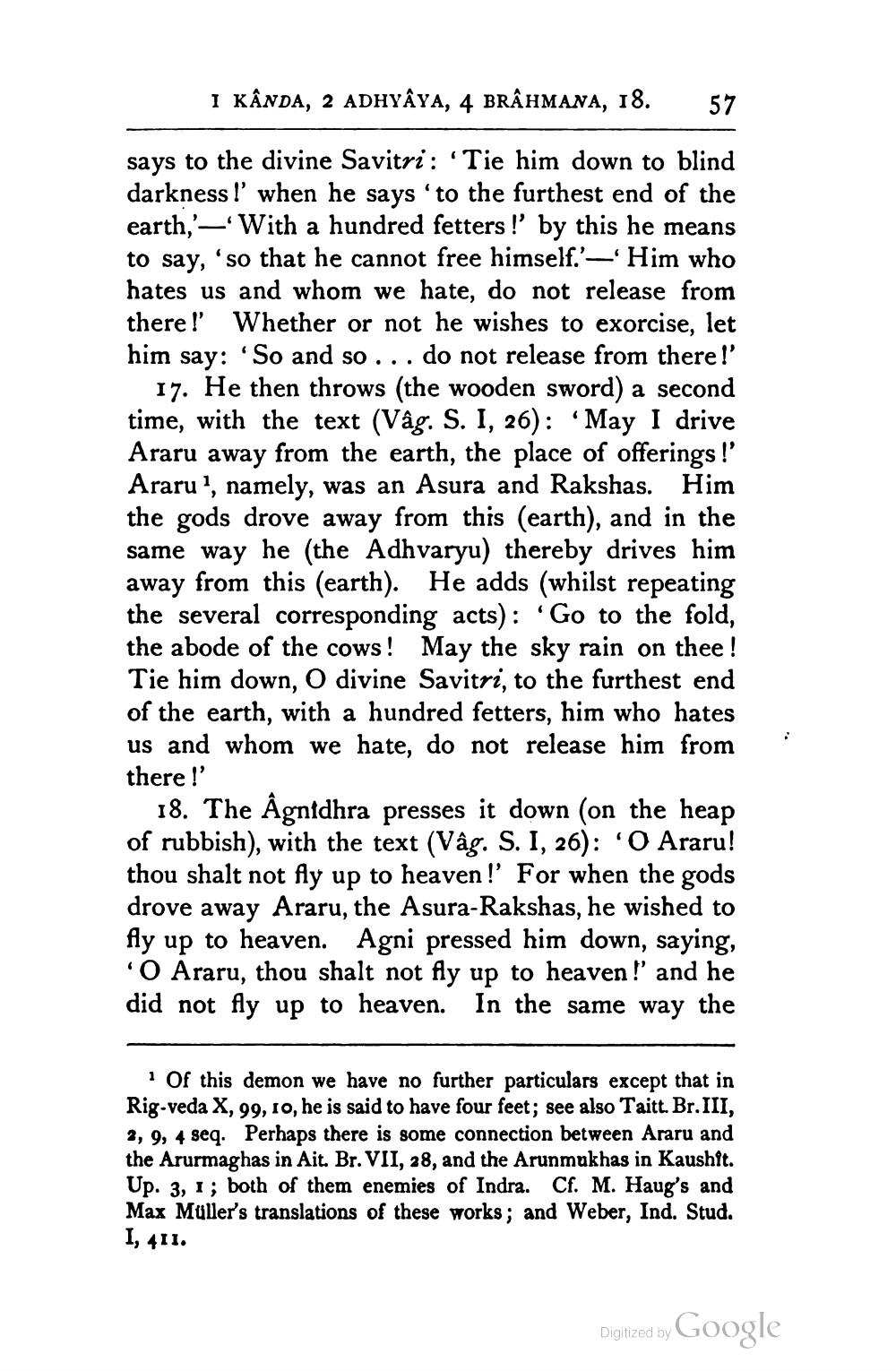________________
I KÂNDA, 2 ADHYAYA, 4 BRÂHMANA, 18.
57
says to the divine Savitri : ‘Tie him down to blind darkness l' when he says 'to the furthest end of the earth,'-—'With a hundred fetters !' by this he means to say, 'so that he cannot free himself.'—' Him who hates us and whom we hate, do not release from there! Whether or not he wishes to exorcise, let him say: 'So and so ... do not release from there!'
17. He then throws (the wooden sword) a second time, with the text (Vâg. S. I, 26): “May I drive Araru away from the earth, the place of offerings !' Araru', namely, was an Asura and Rakshas. Him the gods drove away from this (earth), and in the same way he (the Adhvaryu) thereby drives him away from this (earth). He adds (whilst repeating the several corresponding acts): 'Go to the fold, the abode of the cows! May the sky rain on thee! Tie him down, O divine Savitri, to the furthest end of the earth, with a hundred fetters, him who hates us and whom we hate, do not release him from there!
18. The Agnidhra presses it down (on the heap of rubbish), with the text (Vâg. S. I, 26): O Araru! thou shalt not fly up to heaven!' For when the gods drove away Araru, the Asura-Rakshas, he wished to fly up to heaven. Agni pressed him down, saying,
O Araru, thou shalt not fly up to heaven!' and he did not fly up to heaven. In the same way the
:
1 Of this demon we have no further particulars except that in Rig-veda X, 99, 10, he is said to have four feet; see also Taitt. Br. III, 2, 9, 4 seq. Perhaps there is some connection between Araru and the Arurmaghas in Ait. Br. VII, 28, and the Arunmukhas in Kaushit. Up. 3, 1; both of them enemies of Indra. Cf. M. Haug's and Max Müller's translations of these works; and Weber, Ind. Stud. I, 411.
Digitized by Google




